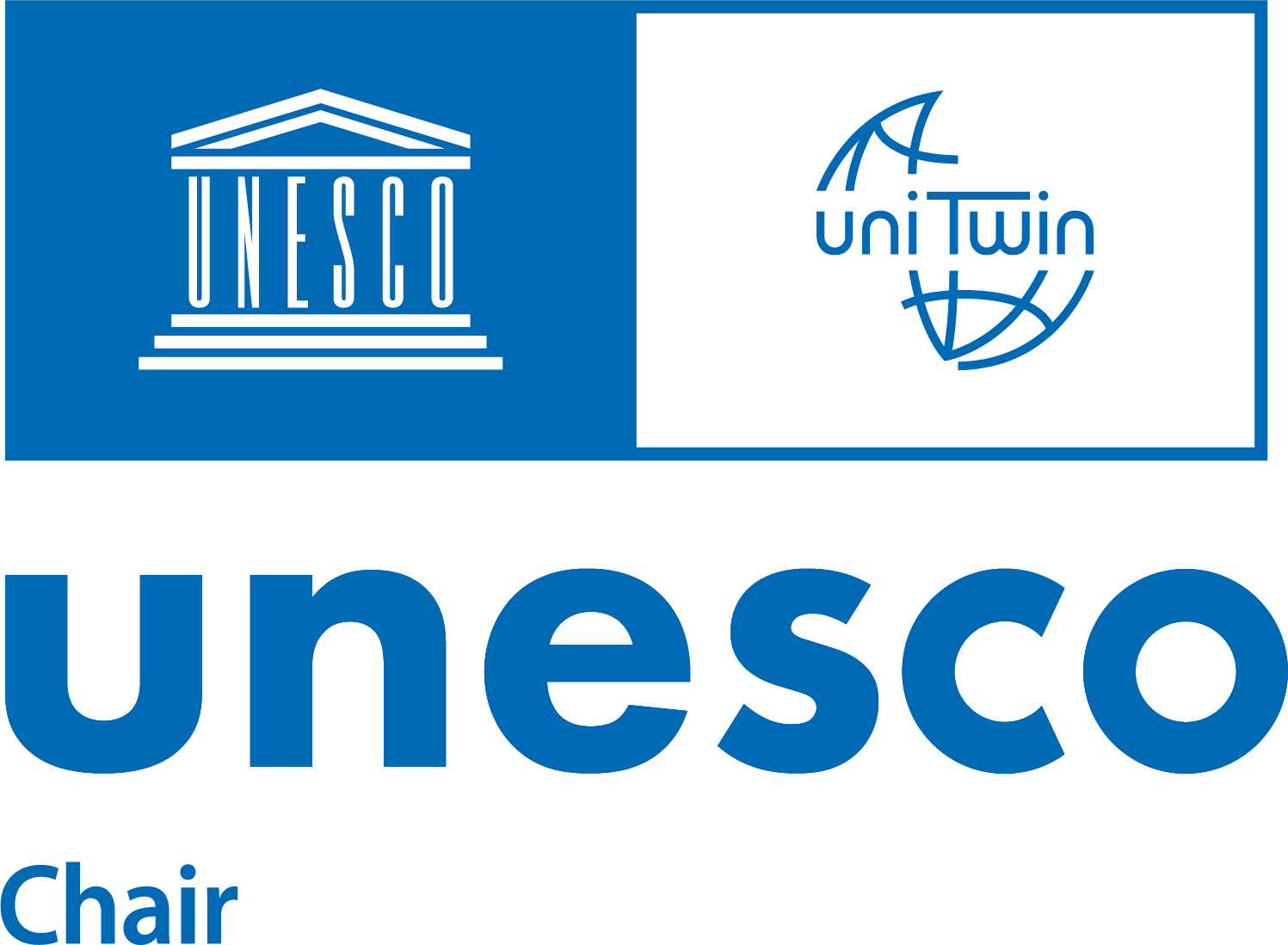ERASMUS+ BIP Summer School 2025: International Research in Culture and Arts Education
About our ERAMUS+ BIP Summer School
We live in complex times, characterised by enormous (technological) progress on the one hand, and profound crises on the other, both leading to major cultural and social transformation dynamics. The field of Culture and Arts Education is challenged – no less than other pedagogical fields – to respond to these significant changes and to engage with them in a critical reflective way. Likewise, research in this pedagogical field is faced with the task of questioning and further developing its own theoretical backgrounds and established research methodologies in order to develop new, innovative methodological approaches and perspectives on the field of practice being researched.
Against this background, the ERASMUS+ BIP Summer School 2025, which will take place in Nuremberg from 7 July to 11 July 2025, aims to familiarise the participating students with central discourses, questions, methodological approaches and results of research on Culture and Arts Education. The basis for this is laid during an online seminar phase that precedes the summer school.
The content provided in this (a-)synchronous online phase will be deepened and expanded on-site in Nuremberg through lectures and workshops with internationally renowned academics from the field of Culture and Arts Education and beyond. The focus will then be on the question of how, for example, inter- and transdisciplinary, planetary, post/decolonial, post-digital, sustainability-oriented as well as cultural studies and new-materialist perspectives can contribute to the development of innovative (research) practice in Culture and Arts Education.
| University for Continuing Education, Krems, Austria | University of Sarajevo, Bosnia & Herzegovina | Plovdiv University Paisii Hilendarski, Bulgaria |
Friedrich-Alexander-Universität Erlangen-Nürnberg, Germany |
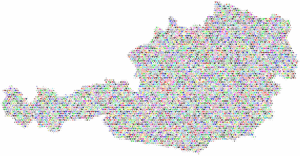 |
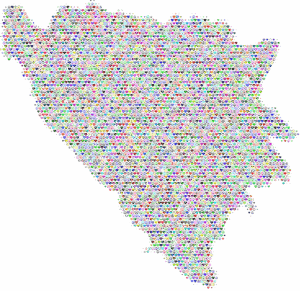 |
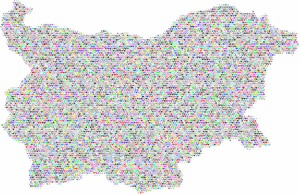 |
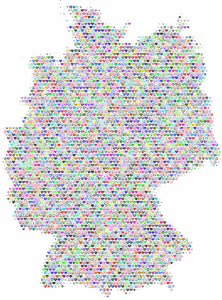 |
| Latvian Academy of Culture, Riga, Latvia & Riga Technical University |
AGH University of Science and Technology, Krakow, Poland |
Universidade do Porto, Portugal |
Radboud Universiteit, Nijmegen, The Netherlands |
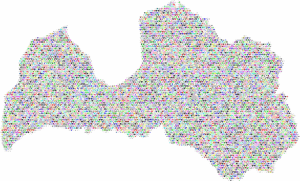 |
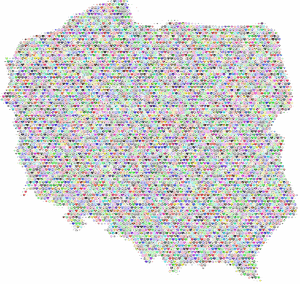 |
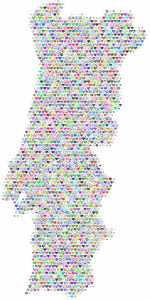 |
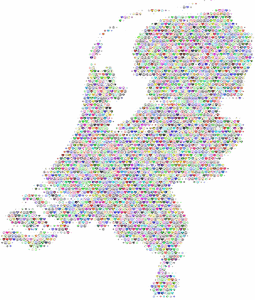 |
(Graphics: Pixabay)
Sunday is reserved for the journey to Nuremberg and for checking into the ho(s)tels. The official programme for the participating students starts on Monday morning.
| 9.00 – 9.30 | Arrival – Start of the Day Room: Side Foyer |
| 9.30 – 10.00 | Welcome Ceremony and Greetings Room: AkademieLAB |
| 10.00 – 10.30 | Group photo with Meet and Greet Room: Side Foyer or outside in Courtyard D (if the weather allows) |
| 10.30 – 11.00 | Lecture I “Peripheral Creativities: Youth, Culture and Public Policy in Segregated Territories” Lígia Ferro, Universidade do Porto, Portugal Room: AkademieLAB |
| 11.00 – 12.30 | Workshop I “Policy Recommendations for Culture and Arts Education for Young People” Lígia Ferro, Universidade do Porto, Portugal Room: AkademieLAB In this 1h30m workshop, we will think about making a soup together, where we will have different ingredients (water, oil, carrots and cabbage). These different ingredients correspond to different topics of discussion, and we will split the big group into 4 groups to discuss them (1-creativity, arts and culture, 2-young people, 3-territory and 4-public policy). Some questions will be shared with each group in advance for discussion. Each group shall write key words in post-its to then put into a bowl to cook the soup. In the end, the whole group will read and discuss the results. |
| 12.30 – 13.00 | Workshop I: Presentations Room: AkademieLAB |
| 13.00 – 14.00 | LUNCH BREAK Room: Side Foyer |
| 14.00 – 14.30 | Lecture II “Narratives of Sustainability – Situational Analysis and Discourse-Analytical Approaches in Culture and Arts Education” Tanja Klepacki, Friedrich-Alexander-Universität Erlangen-Nürnberg, Germany Room: AkademieLAB |
| 14.30 – 16.30 | Workshop II (Peer Workshop) “Narratives of Sustainability – Let’s get practical!” Janina Czerwinski, Angelika Ewelt, Leon Kaiser & Hannah Ölschlager (MA-Students), Friedrich-Alexander-Universität Erlangen-Nürnberg, Germany Room: AkademieLAB BIP Partners Staff Meeting “What’s Next?! – Future Perspectives” Room: Freiraum |
| 16.30 – 17.00 | Workshop II: Presentations Room: AkademieLAB |
| 17.00 – 18.00 | Travel time to Nuremberg City Centre |
| 18.00 – 19.00 | Nuremberg City Tour Meetingpoint: Hexenhäusla (Vesterntorgraben 4, 90402 Nürnberg) |
| 19.30 – 22.00 | Joint Welcome Dinner – Bruderherz Nürnberg (Luitpoldstraße 15, 90402 Nürnberg) |
| 9.00 – 9.30 | Arrival – Start of the Day Room: Side Foyer |
| 9.30 – 10.00 | Lecture III: “Social and Cultural Sustainability” Edwin van Meerkerk, Radboud Universiteit, Nijmegen, The Netherlands Room: AkademieLAB |
| 10.00 – 12.00 | Workshop III – Part I: “A Future-proof Education” Edwin van Meerkerk, Radboud Universiteit, Nijmegen, The Netherlands Room: AkademieLAB Education, according to Pierre Bourdieu, inculcates societal norms and values in its pupils. In like manner, education itself is engrained in our beings. When you are a student in your twenties, you have been educated for all the life you can remember: hardly anyone has clear memories from their life before school. This makes it incredibly hard to think of a different way of teaching and learning. Yet, if education is the inculcation of society in people, then changing that society must begin in education. In this workshop, we will reconsider education in the context of global challenges, sustainability, and resilience. |
| 12.00 – 13.30 | LUNCH BREAK Room: Side Foyer |
| 13.30 – 16.00 | Workshop III – Part II Edwin van Meerkerk, Radboud Universiteit, Nijmegen, The Netherlands Room: AkademieLAB |
| 16.00 – 17.00 | Workshop III: Presentations Room: AkademieLAB |
| 17.00 – 18.00 | Travel time to Nuremberg City Centre |
| 18.00 – 20.00 | Nuremberg from another angle: Critical walk – A (de)colonial city tour! ISD Nürnberg [Initiative Black People in Germany] e.V. Meeting point: Main Entrance GNM (Kartäusergasse 1, 90402 Nürnberg) |
| 20.00 | End of day and time at free disposal! |
| 9.00 – 9.30 | Arrival – Start of the Day Room: Side Foyer |
| 9.30 – 10.00 | Lecture IV: “Explorative Research in Context of Digital Media and Culture with Focus on Generative Artificial Intelligence” Benjamin Jörissen, Friedrich-Alexander-Universität Erlangen-Nürnberg, Germany Room: AkademieLAB |
| 10.00 – 12.00 | Workshop IV – Part I: “Explorative Research in Context of Digital Media and Culture with Focus on Generative Artificial Intelligence” Benjamin Jörissen & Vanessa Baumann, Friedrich-Alexander-Universität Erlangen-Nürnberg, Germany Room: AkademieLAB Digital technologies and medialities permeate contemporary lifeworlds not merely through visible applications but increasingly also within the hidden domains of algorithms, protocols, and infrastructures.Educational research is thus challenged by digitality and digitization in numerous ways; concerning both the object of research as well as methodological approaches – recently in the context of so-called artificial intelligence – (AI-assisted) research practices themselves. Beyond pragmatic research complications (such as gathering technically complex data), methodological and methodical questions particularly emerge concerning how technological and media-related structures or structural actors can be adequately accounted for within research and empirical research. These challenges frequently necessitate innovative methodological designs.This workshop builds upon long-standing research efforts within the contexts of digital and postdigital mediality and culture. Explicitly, it addresses not only those who are (digitally) technically adept or engaged in fields related to media pedagogy and technology. However, participants are expected to demonstrate considerable readiness and interest in intensively engaging with mediatheoretical aspects and mediality-related dimensions of digital technologies and cultures.The workshop particularly focuses on structurally analytic approaches to digital designs and phenomena motivated by cultural and media theory. Perspectives on digitality are first theoretically introduced and subsequently explored in collaborative analysis, using selected digital objects and phenomena as exemplars. Participants are encouraged to integrate their own research perspectives—potentially from dissertation projects—into the workshop. |
| 12.00 – 13.30 | LUNCH BREAK Room: Side Foyer |
| 13.30 – 16.00 | Workshop IV – Part II Benjamin Jörissen & Vanessa Baumann, Friedrich-Alexander-Universität Erlangen-Nürnberg, Germany Room: AkademieLAB |
| 16.00 – 16.30 | Workshop IV: Presentations Room: AkademieLAB |
| 16.30 – 17.30 | Organisational Stuff & Travel Time |
| 17.30 – 19.30 | Guided Tour of the former Nazi Party Rally Grounds + Documentation Centre Meeting point: Documentation Centre (Bayernstraße 110, 90478 Nürnberg) |
| 20.00 | Optional: Joint Dinner – Café Wanner (Bayernstraße 150, 90478 Nürnberg) |
| 9.00 – 9.30 | Arrival – Start of the Day Room: Side Foyer |
| 9.30 – 10.00 | Lecture V: “Striving Towards Participatory Engagement in Museums: Inquiry into Museum Education Practice in Latvia / MEET” Elīna Vikmane, Latvian Academy of Culture, Riga, Latvia Room: AkademieLAB |
| 10.00 – 12.00 | Workshop V: “Engaging Youth in Qualitative Research: Using Visually Supported Method in In-Depth Interviews to Explore Cognitive, Emotional, Sensory, and Social Aspects of Experience“
Elīna Vikmane, Latvian Academy of Culture, Riga, Latvia This workshop aims to introduce students to the qualitative research methods (1) River of Life and (2) Group-Level Assessment (GLA), which we find particularly beneficial within a participatory approach. |
| 12.00 – 12.30 | Workshop V: Presentations Room: AkademieLAB |
| 12.30 – 14.00 | LUNCH BREAK Room: Side Foyer |
| 14.00 – 15.30 | Lecture VI: “Mapping Meaning: Interpreting Heritage Through Fieldwork Fragments” and Q&A Miklós Both, Heritage House (Hagyományok Háza) Budapest, Hungary Room: AkademieLAB |
| 15.30 – 17.00 | Workshop VI: “Mapping Meaning: Interpreting Heritage Through Fieldwork Fragments” Miklós Both, Heritage House (Hagyományok Háza) Budapest, Hungary Room: AkademieLAB This session explores how layers of meaning are embedded in ritual and musical practices, using a combination of keynote lecture and group-based interpretive analysis. The impulse lecture introduces the ethnographic and audiovisual approach used in the Polyphony Project and other fieldwork, with attention to ethical, aesthetic, and curatorial questions in documentation. The workshop segment invites participants to engage with short subtitled video excerpts (3–6 minutes each), recorded during fieldwork in Ukraine and elsewhere. Themes range from winter ritual traditions to the memory of the Holodomor and other forms of cultural transmission. Participants will work in groups to “map meanings” across several dimensions: personal, local, national, institutional, and aesthetic. Each group will analyze a different interview excerpt, followed by a joint screening, group presentations, and final reflection. |
| 17.00 – 18.00 | Workshop VI: Presentations Room: AkademieLAB |
| 18.00 | End of day & time at free disposal! |
| 9.00 – 9.30 | Arrival – Start of the Day Room: Side Foyer |
| 9.30 – 10.00 | Lecture VII: “Art, Cultural Education, Rural Areas and Affect“ Birgit Althans, Kunstakademie Düsseldorf, Germany Room: AkademieLAB |
| 10.00 – 12.00 | Workshop VII – Part I: “Art and/as Intra-action” Birgit Althans, Kunstakademie Düsseldorf, Germany In this workshop, the topic »Art and/as Intra-action» will firstly be approached through a film trailer entitled ‘Tentacles of the Academy’, which was created in collaboration with students from the Düsseldorf Art Academy and provides initial impetus for the central question of our session: How and through what means can art touch us and bring about change? The following discussion will draw upon the film to illustrate two theoretical concepts, ‘intra-action’ and ‘affective relations’. The subsequent phase of the study will entail an examination of the participants’ personal narratives, with the objective of investigating the following research questions: Is there a memory of a moment, a place, an encounter where something beautiful (or frightening) directly touched you and changed what you were used to? Was it caused by people or animals, sounds, a special light, landscapes or objects? In a last step, the participants describe this personal memory and creatively implement and materialise it – be it as a sketch, text or whatever is their favorite form of articulation, so that everyone can take away something unique from the workshop. Room: AkademieLAB |
| 12.00 – 13.30 | LUNCH BREAK Room: Side Foyer |
| 13.30 – 16.00 | Workshop VII – Part II: “Art and/as Intra-action” Birgit Althans, Kunstakademie Düsseldorf, Germany Room: AkademieLAB |
| 16.00 – 17.00 | Workshop VII: Presentations Room: AkademieLAB |
| 17.00 – 17.30 | Summary & Conclusion |
| 19.00 | Joint Farewell Dinner & Final Evening – Tel Aviv-Jaffa (Spohrstraße 16, 90429 Nürnberg) |
Saturday is reserved for the (long) journey back home.
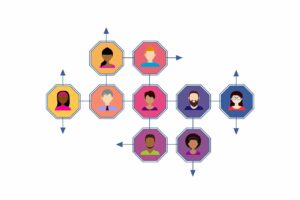 |
Birgit Althans is Professor of Pedagogy at the Düsseldorf Art Academy in Germany. Her research focuses on educational and historical anthropology, gender and cultural studies, and material feminism. In her latest BMBF-funded research project ‘Wasteland? Rural Areas as Affective Space and Cultural Education as Pedagogy of Situating’ (2020-2023), she focused on nature-culture relations, affect theory in pedagogy, and the conception of a pedagogy of situating. >> Click here for more information! |
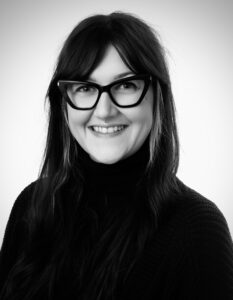 |
Vanessa Baumann is a research assistant in the BMBFSFJ-funded research project „Artificial Intelligence for Arts Education“ (2024 – 2026) at the Chair of Education with a focus on Culture and Aesthetics / UNESCO Chair in Digital Culture and Arts in Education at the Friedrich-Alexander-Universität Erlangen-Nürnberg, Germany. |
 |
Miklós Both is a Hungarian composer, performer, and ethnographer. He is the Director of Heritage House in Budapest and founder of the Polyphony Project and Folk_ME digital archives. His work focuses on the collection, analysis, and digital presentation of traditional music and oral heritage in Central and Eastern Europe. He is also a guest lecturer at the University of Pécs, where he teaches ethnographic methodology and cultural heritage studies. >> Click here for more information! |
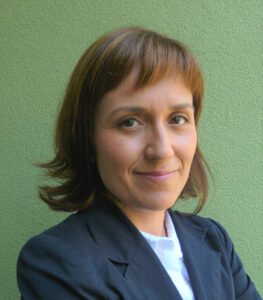 |
Lígia Ferro is a Professor in the Sociology Department, Faculty of Arts – University of Porto. She received her European Ph.D. from the University Institute of Lisbon, ISCTE-IUL (2011). She was a visiting scholar at several universities in Europe, the United States of America and Brazil. Lígia Ferro is President of the European Sociological Association and is a member of the board of the European Network of Observatories in the Fields of Arts and Cultural Education – ENO. She is the author and editor of several publications in Portuguese, English, Spanish, and French. Lately, she has been working on cultural practices, arts education, migrations, and action research, especially in urban contexts. |
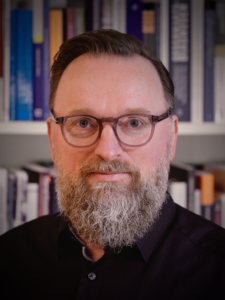 |
Benjamin Jörissen (PhD) is Full Professor of Education with a focus on Culture and Aesthetics and Chairholder of the UNESCO Chair in Digital Culture and Arts in Education at the Friedrich-Alexander-Universität Erlangen-Nürnberg (Germany). The Chair’s research aims to contribute to an understanding of the role of aesthetic, arts, and cultural education in a transforming and diverse world. Fields of work include the development of an understanding of Bildung with regard to cultural resilience and cultural sustainability, empirical research in postdigital culture including several research projects on digitalization in arts and cultural education. Jörissen is, amongst others, member of the European Academy of Sciences and Arts, Speaker of the UNESCO UNITWIN Network Arts Education Research for Cultural Diversity and Sustainable Development, as well as the chairperson of the Expert Committee on Intangible Cultural Heritage and a member of the Expert Committee on Culture of the German UNESCO Commission.
As an educational scientist, Jörissen is known for his work on aesthetics, media and educational theory. His work focuses on the concept of Bildung, which he understands as a relational, i.e., superindividual, transformative and dynamic process of self and societal development. Within this framework, he explores the role of digital media and technology in education, particularly in terms of how they impact the cultural and societal dimensions of Bildung. Overall, Jörissen’s work is notable for its interdisciplinary approach, drawing on philosophy, critical theory, cultural studies, media theory, and qualitative (reconstructive) research in order to develop a nuanced and critical understanding of education as a dynamic and transformative process. |
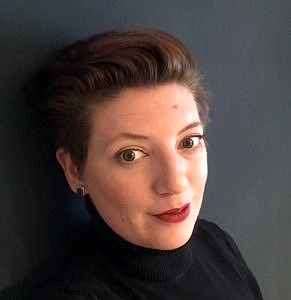 |
Tanja Klepacki, (PhD), is the Senior Researcher (Akademische Oberrätin) of the UNESCO Chair in Digital Culture and Arts in Education at the Friedrich-Alexander-Universität Erlangen-Nürnberg, Germany. Amongst others, she works as executive manager of the Chair’s Academy for Digital Culture and Performative Education in Nuremberg. Her fields of interest include theoretical and empirical studies in the fields of culture, aesthetic and arts education, cultural heritage and transformation dynamics as well as cultural sustainability and cultural resilience. |
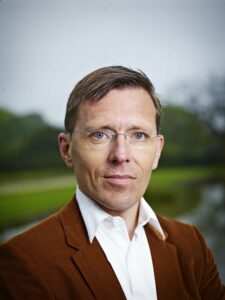 |
Edwin van Meerkerk is Professor of Cultural Education at Radboud University, Nijmegen. He publishes on this subject as well as on cultural policy and higher education for sustainability in both open-access academic journals and for the wider public. He is also endowed professor of Social and Cultural Sustainability at ArtEZ University of the Arts and Leadership fellow in the Comenius Programme for Educational Innovation. In his research and teaching, he is driven by curiosity about how people give shape to their ideas about the value of art in practice. He does this, among other things, through his long-term research into the cooperation between art teachers and teachers in primary education within the framework of the national programme Quality Cultural Education. He is also concerned with the differences between policy and practice with regard to cultural entrepreneurship. He has worked with societal partners such as Oxfam on bridging arts and cultural education with global societal challenges. Currently, he is leading a project to implement sustainability in the widest sense of the concept in all bachelor’s programmes at Radboud University. |
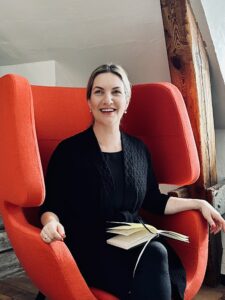 |
Elīna Vikmane is the director of MA study programme “Cultural Heritage Governance and Communication” at Latvian Academy of Culture, the member of Digital Transformation working group at Network of European Museum Organisations (NEMO), the board member of the Latvian Museum Association and Latvian Contemporary Art Museum Foundation. In 2023, her PhD thesis research proposal “Advancing cybermuseology: Digital innovation diffusion in museum sector” was awarded Aina Birnitis Fellowship in humanities for Latvia by The Association for the Advancement of Baltic Studies (USA). In 2021, she was awarded “Emerging Scholar Award” from the global “Inclusive Museum Research Network”, Her interests are mainly related to the museum theory and practice with the focus on dynamics of the digital advancement of museums and a social role of culture and cultural heritage in particular. In 2023, her project proposal “Striving Towards Participatory Engagement in Museums: Inquiry into Museum Education Practice in Latvia (MEET)” was selected as one of four three years projects in humanities by Latvian Science Council (overall success rate – 7,5%). Previously, she has been involved in research projects, such as “The Art of Nationalism: Social Solidarity and Exclusion in Contemporary Latvia” and “Cultural Capital as a Resource for Sustainable Development of Latvia/CARD”. In 2021, she has received numerous r research grants for doctoral students from Institute of Arts and Cultural Studies, and a grant “To Support Research Activities and Dissemination of the Findings” from the State Culture Capital Foundation of Latvia. |
Best Western Hotel Nürnberg City-West
Regerstraße 6, Nürnberg
Single room per night: 104,- € (incl. breakfast)
Reservation code: “Karinding” (Please state when making your reservation!)
The room quota is available from now until 9 June 2025!
Living Hotel
Obere Kanalstraße 11, Nürnberg
Single room per night: 89,- € (incl. breakfast)
Double room per night: 114,- € (incl. breakfast)
Reservation code: “Karinding” (Please state when making your reservation!)
The room quota is available from now until 6 June 2025!
Werners Boutique Hotel
Friedrichstraße 20-22, Fürth (Still very close to our venue!)
Single room “Supérieur” per night: 99,- € (incl. breakfast)
Double room “Supérieur” per night: 159,- € (incl. breakfast)
Single room “Intime” per night: 89,- € (incl. breakfast)
The room quota is available from now until 20 May 2025!
Five Reasons Hotel & Hostel
Frauentormauer 42, Nürnberg
Bed in 4 Bed Dorm Mixed: 43,09 € (per bed and night)
Double Room Private: 75,60 € (per room and night)
Bed in 8 Bed Dorm Female: 37,80 € (per bed and night)
Bed in 6 Bed Dorm Female: 41,20 € (per bed and night)
Standard Apartment 4 Beds Private: 148,18 € (per room and night)
4 Bed Dorm: 172,37 € (per room and night)
6 Bed Dorm: 247,21 € (per room and night)
8 Bed Dorm: 302,30 € (per room and night)
Reservations via: https://app.mews.com/distributor/33cf34fb-c729-4549-9740-5e47382de673?mewsVoucherCode=FAU06%2F2025
The room quota is available from now until 6 June 2025!
Kulturwerkstatt Auf AEG (Fürther Straße 244d, 90429 Nürnberg, Germany)
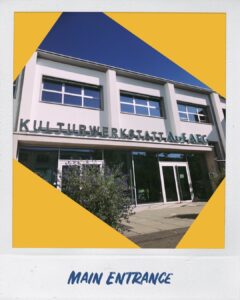
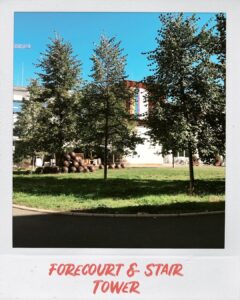
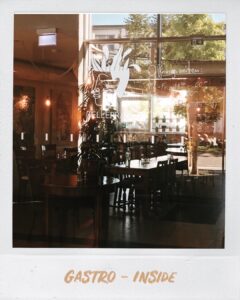
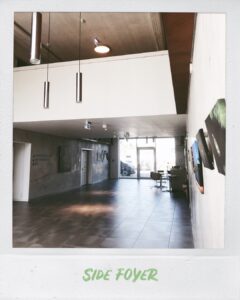

 |
In the spirit of ecological sustainability, we ask our guests and event participants to arrive by public transport, bicycle or walking whenever possible.
Thank you very much!
|
Bicycle:
Bicycle parking is available in sufficient numbers and in close proximity to the main and side entrances next to the Kulturwerkstatt stair tower.
Public transport:
Nearest subway stop: Line U1 “Nürnberg/Eberhardshof” (approx. 10 minutes travel time from Nuremberg main station and a 5 minute walk).
Information for car drivers:
If it is not possible for you to avoid traveling by car, we kindly ask you – whenever possible – to form carpools and to use the (few) free parking spaces along Muggenhofer Straße. The parking area shown on the map is no longer available due to construction work.
Please do not park directly on the company premises!
